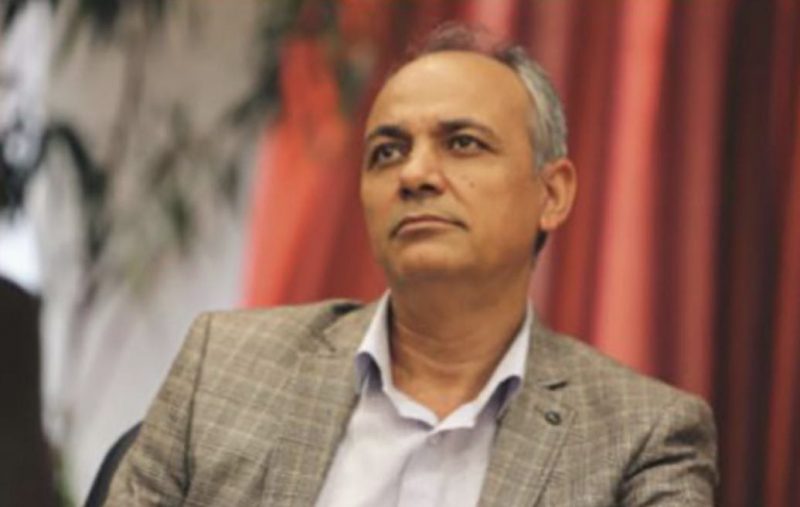Reformism: From Hope to Denial
Reformism: From Hope to Denial. According to Iran Gate, conservatives consider them the creators of the current situation and attribute the current chaotic state to the long-term presence of reformists in power, seeing it as the political product of reformist ideology.
However, regime change advocates and opponents of the Islamic Republic as a whole view reformists as political opportunists who, by making promises they knew from the start were beyond their capabilities, have tried to deceive the people, gain votes, and maintain power and wealth.
Of course, the silence and stances of some reformist leaders like Behzad Nabavi and Saeed Hajjarian may not have been without effect on this anger and attack. But what needs to be precisely discussed is why many political activists have moved away from and denied the reformist label.
Being a reformist is a political sin. Why does Zeidabadi renounce reformism?

Over the past two decades, Ahmad Zeidabadi has had a unique situation. Zeidabadi gained social fame by writing in newspapers that emerged from the people’s vote for Khatami’s presidency, but in 1997, he preferred Nateq-Nouri to become president. In 2000, he also called for Mohammad Khatami’s resignation, yet during Khatami’s second term, he wrote for the reformist newspaper Shargh, which was the most important reformist newspaper.
Overall, it can be said that Ahmad Zeidabadi has been a journalist and sometimes even a reformist political activist, but he has always preferred that reformists step aside from the power structure and conservatives take control.
This strategic stance, although it seems strange, is likely because Mr. Zeidabadi, due to his democratic inclinations, could not work in right-wing publications. Secondly, he says his positions have always been distant from reformists. Thirdly, Zeidabadi does not believe that conservatives, after the complete removal of reformists from the power structure, will suddenly become pro-democracy.
Rather, his core message is that in the absence of reformists and the continuation of the current unfavorable conditions, conservatives will sooner or later face a moment of truth—a moment that will lead them to seriously step into pragmatism and abandon their ideological attachments, resulting in internal and external political compromise. This mutual compromise will usher Iran into a new historical phase, believes the desert man of Iran’s press.
In response to the question that you are always considered by society as a reformist or close to this political movement, Zeidabadi answers: I have never been specifically in the reformist camp, and my positions have always been distant from them. In fact, throughout the flourishing years of reformism, my criticism of reformists has always been ongoing and sometimes reached sharp points. Being seen, even if there is a motivation for it, is not achieved only in one way.
If these friends paid attention, they would realize that I actually do not want to be seen much. Being seen these days, thanks to social media and the development of the communication industry, is very easy, but I more or less avoid it. I shy away from Twitter, rarely accept interview and speech requests, and flee from controversy in any field. Nevertheless, if they want to think this way, let them. That’s what freedom is for, after all.
Thoughtful Conservatives’ Critique of Reforms
Individuals like Emad Afrough, a conservative representative in the seventh parliament, sociologist, and university professor, are among the few thinkers in the conservative movement who always critique based on academic theories and provide solutions.
Afrough, who has faced the wrath of the powerful conservative segment due to what he calls intra-discourse critique, which is based on internal critique and observing the shortcomings of his movement’s performance, makes a significant critique of the contradiction between the slogan of freedom and the presence of security personnel in the inner circle around Khatami.
Afrough believes that individuals with a security background surrounded Mr. Khatami; these people could not be heralds of freedom. Generally, security personnel have a structure where others should not hear, see, or read. Such forces cannot carry the banner of freedom. Someone without a background in advocating for freedom cannot be a proponent of freedom.
Of course, this critique also applies to Rouhani’s government, as not only in the first circle of his managers but he himself has a full-fledged security persona. Of course, not all conservative critiques are limited to the reasons for the lack of success in political development and socio-political freedoms.
Many of them, by attacking the economic policies of governments they consider liberal, blame them for the current situation, while the performance of the so-called justice-seeking Ahmadinejad government and Raisi’s locomotive of progress government in key economic indicators has been disastrous. What is certain is that the hardliner conservatives’ critique is focused on power competition and is heavily mixed with destruction and denigration rather than statistics and evidence.
Regime Change Advocates and Some Foreign Media Against Reformism
Another part of this critical atmosphere against reformists is influenced by media-driven narratives. In this period, especially by foreign media, efforts were made to direct protests towards reformist personalities, parties, and organizations and to portray reforms as fruitless because the alternative to reforms is regime change, and they wanted to promote regime change.
Here, part of the criticism should be directed at official media inside the country, which, by not performing well, effectively handed over their role to non-official media. It is clear that society and media elites rely more on networks and virtual media, and fake news is very influential in this virtual and networked space. As a result, the role of reformists and reformist groups must be seen both in the media attacks that favored regime change and in the necessity of adapting themselves to new conditions, which naturally have been tough and different from the past.
Criticism of reformists for supporting their affiliated governments is a reality. Reformists have been politically placed in this situation due to the necessity of proposing and pursuing demands, where a critical relationship towards reforms and a critical relationship of reforms towards these governments also exists.
We must also consider that the main option for Iran to overcome current problems and open up comprehensive development horizons in the future is through the path of democracy, and the democracy program also involves strengthening civil institutions, parties, empowering society, and paying attention to new sectors such as youth, women, and ethnic groups that are emerging in society.
At the same time, reforming structures, making the executive, economic, and political systems more flexible is proposed within a larger package called reforms, and if we accept that this path can solve today’s problems of Iran and also open a horizon for the future, we must accept that reformists, civil society, and the people should be placed alongside each other.
Eliminating or piling up any of these parts or projecting will not bring us closer to the destination, meaning reformists should help governments or even ask or force governments to be accountable to the people’s demands and their promises. However, wanting to separate their fate from the fate of governments and distance themselves is not correct. People do not accept this distancing, and therefore we must move towards having the government and the entire sovereignty show new approaches corresponding to the protests, demands, and requests of the people.
Now, none of the propositions regarding advocacy, activism, and participation relate to the discourse of regime change, and naturally, they stand against this model of political behavior.
The attack by regime change advocates to eliminate and declare the end of reforms may be the most vital step for this movement in the path of regime change because, as previously mentioned, the only alternative to reforms is regime change, and of course, conservatives as the other edge of the scissors fighting reforms play a significant role in fulfilling the regime change advocates’ desire for the death of reforms.

